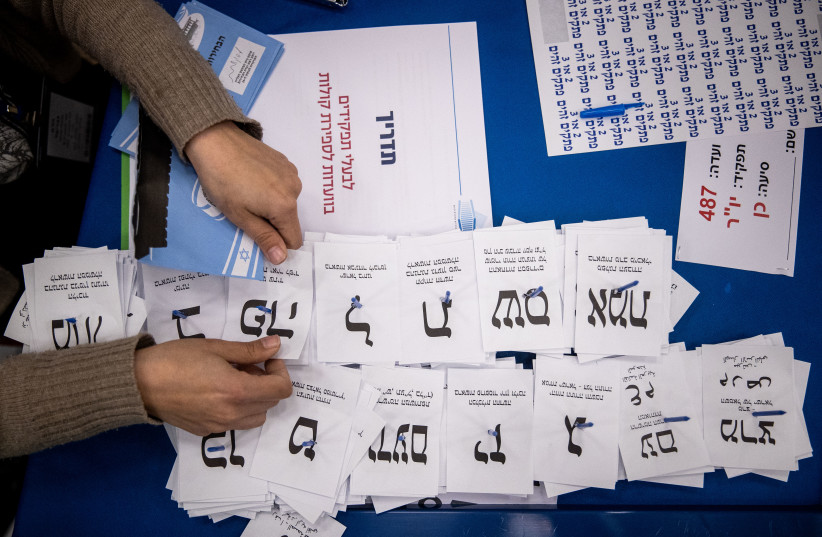In less than a month, the public will again return to the polls for the fifth time over the past three years.
As troubling as this might be from the political perspective, I fear that the far more dangerous implications of this constant return to campaigning and voting are the societal ones.
Eventually, some level of political sanity will prevail and a government will come into power that will sustain itself.
But along the way, we will have created a nature of social divisiveness through competing parties and ideologies that has set back the vision of a united Zionist nation in ways that I sometimes fear are irreversible.
With each election cycle, identity politics becomes more and more entrenched, positioning us against each other in deeply painful ways.

And while indeed there are many troubling divides that this process has given birth to, the most disturbing and dangerous is between what I would describe as Judaism and Israelism.
In 1948, most would have never believed that these two ideals would ever come to compete with one another. But 75 years later, the reality is that there are even those who believe that one cannot be a truly good Jew if they are a good Israeli, or a truly good Israeli if you are a good Jew.
It is for this reason that I believe our mandate, as purveyors of the spirit of religious Zionism, which brought about the miraculous return of the Jewish people to our homeland after thousands of years of exile, must be to address and overcome this challenge.
How to come together
Every day, we need to think about what needs to be done to create a national social framework where every Israeli Jew, and indeed every Jew across the Diaspora, can take immense pride in the Jewish and Israeli identities and see no contradiction between the two.
It was perhaps not intentional, but last week tens of thousands of Israelis demonstrated their commitment to that task when they gathered in Yom Kippur services arranged by Tzohar all throughout the country.
Every type of Jew was represented there. Sephardim stood along Ashkenazim and the secular alongside the religious. No delineations were made whether the person was voting Right or Left, Yesh Atid or Likud. Everyone was accepted and embraced, and it was a moment of true Israeli and Jewish unity.
Based on the more than 25 years that we have been dedicated to creating programs of this type, often in the face of many obstacles and opposition, I know that this is a model that can thrive and needs to be replicated in all walks of life.
Because if we fail to re-discover that sense of national unity, then the many challenges we face – political, cultural, economic and social – will become increasingly insurmountable.
Yet I take encouragement from the fact that if Jewish history has taught us anything, it is that we can overcome even the toughest of hardships when we put aside those divisions.
And now is certainly the time to promote unity for the good of the country and the Jewish people.
Beyond the well-known issues we continue to face in protecting our national security and economy, we need to invest more in creating a more stable society. We need to heal rifts with the Diaspora.
Knowing the escalating challenges of immigrants from the former Soviet Union, many of whom are not Jewish, we have to create a more effective model for conversion so that we can ensure that assimilation, which plagues other Jewish communities, will never become an aspect of Israeli society.
We need to create more respectful and strategic approaches to responding to crises in religion-state matters like making halachic marriage and kashrut more accessible.
All these action items, and many others, are critical for our very survival and identity.
So to achieve true success we must return to the ideals of what it means to be an Am Yehudi, a Jewish nation. And that requires that we once again resolve to work together to create a united and proud Jewish Israel.
The writer, a rabbi, is the founder and chair of the Tzohar Rabbinical Organization.
